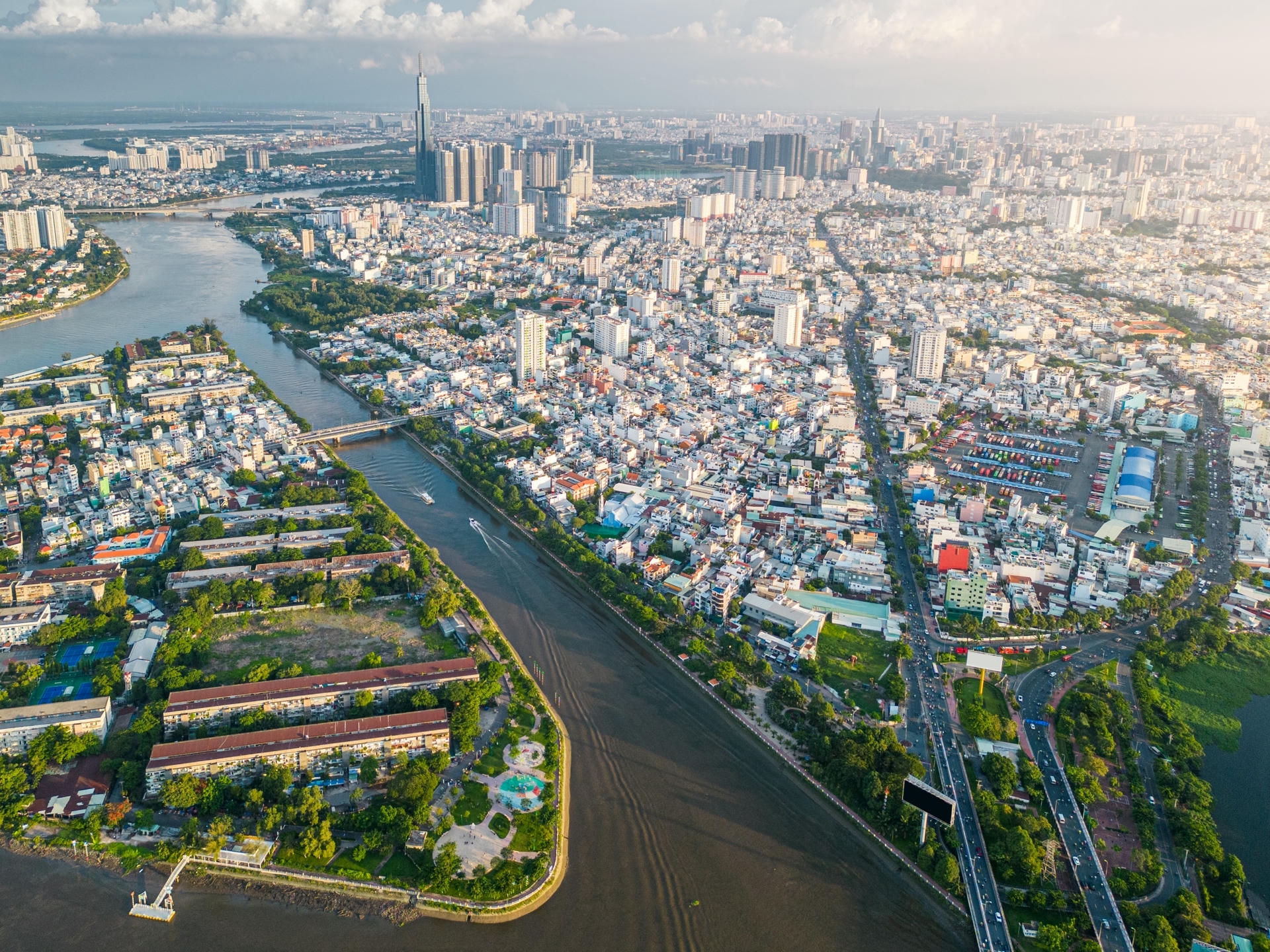VIETNAM REAL ESTATE: FDI SOARS BUT CAN LOCALS KEEP UP?
07/12/2024
Vietnam is on a roll. While other emerging markets grapple with tepid foreign investment, Vietnam’s real estate sector is staging an attention-grabbing comeback. Foreign Investment Agency recently reported that foreign direct investment (FDI) into the sector has skyrocketed by 89% year-on-year, hitting $5.63 billion in the first 11 months of 2024. This surge cements real estate as the second-largest FDI magnet after manufacturing, which still dominates but is showing cracks.
FDI inflows across all sectors totaled $31.4 billion during the period, barely nudging up 1% from the previous year. For years, Vietnam’s FDI narrative was synonymous with manufacturing. In 2024, the sector still accounted for $20.2 billion, or 64.4% of total registered FDI. But that dominance is slipping—the category saw an 8.7% drop from last year. Meanwhile, real estate has surged to 17.9% of total FDI, nearly doubling its share.
Investors are eyeing opportunities across the spectrum—residential, commercial, and industrial properties—all underpinned by Vietnam’s strategic position in global supply chain shifts. Key industrial hubs such as Bac Ninh and Hai Phong are flush with new industrial parks, while urban centers like Ho Chi Minh City are seeing renewed demand for office spaces and luxury apartments. Bac Ninh pulled in $5.04 billion—triple last year’s haul—thanks to its role as a manufacturing hub for global electronics giants. Quang Ninh followed with $2.29 billion, while Ho Chi Minh City secured $2.28 billion to rank third. Ho Chi Minh City remains the country’s undisputed leader in project volume, hosting 42.3% of new FDI projects. It also dominates capital adjustments (14.7%) and stake acquisitions (70.9%), underscoring its enduring appeal to investors looking to diversify across real estate, logistics, and retail.
When it comes to Vietnam’s FDI champions, Singapore is in a league of its own. The city-state poured $9.14 billion into Vietnam this year, accounting for nearly 30% of total inflows—a jaw-dropping 53.7% increase from 2023. Much of this is tied to real estate and industrial developments, reflecting Singapore’s confidence in Vietnam’s long-term potential. South Korea and China, while still major players, are slipping. Korean investments fell 9% to $3.89 billion, and China’s role remains uneven—it leads in new project registrations but lags in committed capital. Hong Kong and Japan round out the top five, but their contributions lack the kind of momentum Singapore has brought to the table.
Zooming out, Vietnam’s overall FDI picture is one of resilience—but with caveats. New registrations, at $17.39 billion, barely moved the needle, up just 0.7% year-on-year. However, existing investors doubled down, driving a 40.7% surge in capital adjustments to $9.93 billion. Stake acquisitions, on the other hand, slumped by nearly 40%, reflecting lingering caution among investors. Implemented FDI—a more reliable barometer of economic impact—rose 7.1% to $21.68 billion, marking a multi-year high. For context, Vietnam now hosts nearly 42,000 active FDI projects worth $496.7 billion in total registered capital. Of that, $318.9 billion has been disbursed—a 64.2% realization rate that few peers can match.

While the sector is limping back from its post-pandemic slump, the recovery is fragile and uneven. The risks feel too high, and for many, waiting seems safer than stepping into a market filled with red flags. As of September 2024, Vietnam’s real estate loans hit 3.15 quadrillion VND, nearly 21% of total credit in the economy according to the State Bank of Vietnam. But while lending for real estate businesses grew 16%, loans for residential buyers barely moved, climbing just 4.6% year-on-year which is a modest improvement from last year’s 3.5%.
The biggest issue is price. Property values across the board—condominiums, single-family homes—have risen sharply since the start of the year, putting ownership out of reach for the average buyer. Vietnam’s booming middle class, once seen as the engine of the property market, is increasingly priced out. High valuations force tough calculations: take on debt for a property that is already wildly expensive, or sit on the sidelines and hope for a correction. The latter looks like the smarter choice.
State lenders like BIDV are dangling introductory rates of 5.2% for the first six months, while Vietcombank offers 5.5% for short-term loans. Even private banks like VPBank have jumped in, undercutting competitors with initial rates as low as 4.6%. But these enticing numbers mask a cold reality: after the promotional periods end, floating rates routinely spike to 11.7% or more. For most buyers, taking on a 20-year mortgage feels like a gamble few are willing to make. For many, renting has become the more pragmatic choice, allowing them to avoid financial risk and retain flexibility in an uncertain market.
Despite the grim short-term outlook, the long-term fundamentals of Vietnam’s real estate sector remain solid. Urbanization continues at breakneck speed, infrastructure projects are transforming cities, and industrial real estate is thriving, buoyed by Vietnam’s status as a critical link in global supply chains. Vietnam’s government is also circling its property tax regime, and for good reason.
The Ministry of Finance is taking a hard look at the system, combing through international examples and tallying the policy failures that have piled up over the years. Idle land—allocated or leased to developers but left unused—remains a glaring issue. Speculative multi-property ownership, which drives up prices and locks average buyers out of the market, is barely penalized. And despite a steady rise in property values, the system continues to allow distortions that disproportionately benefit the wealthy while saddling ordinary people with skyrocketing housing costs.
Real estate is too central to Vietnam’s economy, and any policy misstep risks ripple effects across industries and income groups. The Ministry’s response, while still in the exploratory phase, hints at sweeping changes. The government is studying how other nations handle property taxes and evaluating how new rules might address Vietnam’s glaring inefficiencies while staying aligned with global norms. Reforming taxes on unused or underutilized land is high on the agenda, as is tackling speculative ownership of multiple properties.
Get professional insights in Vietnam properties, residential leasing and asset management services by Arcadia Consulting in Vietnam, reach our Residential Services team at rs@arcadia-consult.com.vn.

